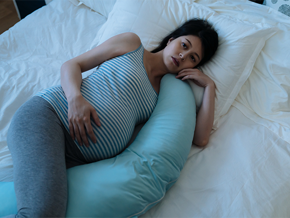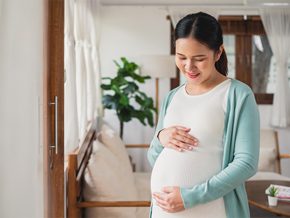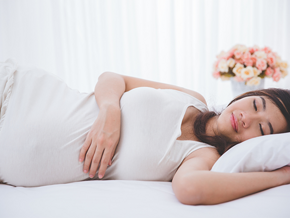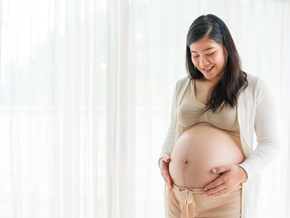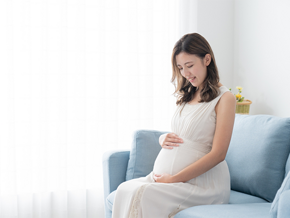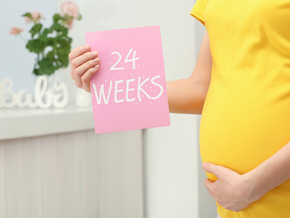
A missed period often tells you that you might be pregnant. But waiting for that moment can feel like forever when you're trying for a baby. The good news? You can try spotting the early signs of pregnancy at Week 3!
While the symptoms may not always be obvious, paying close attention to your body can provide clues. Here are all the answers to your questions at this stage of the pregnancy and your baby's incredible development.
How Long After Sex Does It Take to Become Pregnant?

Did you know sperm can stay in the fallopian tubes for five days but an egg's life span is only 12 to 24 hours?
After you and your partner have unprotected sex during your fertile days, it usually takes about two to three weeks for pregnancy to happen. The timing depends on how quickly those sperm cells reach your fallopian tubes to fertilize an egg. Your pregnancy milestones could look like this:
Day 1 to 2
When your egg meets your partner's sperm, it can happen in just a few minutes or up to 24 hours. Once they combine, you get a single cell called a zygote, which holds DNA from you and your partner.
Day 3 to 5
The zygote starts dividing through mitosis, splitting into two identical cells, then four, then eight, and keeps going. Eventually, it forms a berry-like cluster of 16 cells called the morula (the Latin word for mulberry!). Each of these new cells carries the same DNA as the original zygote.
Day 6 to 7
Once the cluster hits 100 cells, it turns into a hollow ball known as the blastocyst, which gets everything ready for your baby.
Day 8-14
Implantation begins! The blastocyst moves towards your fallopian tubes and attaches to the uterine lining or endometrium. While it keeps dividing, the blastocyst develops two layers:
- Embryoblast: Cells in this inner layer form the embryo. It goes through a process called gastrulation to form organs, limbs, and tissues.
- Trophectoderm: The outer layer of cells forms the placenta and the amniotic sac. The placenta provides oxygen and nutrients to the embryo and helps remove waste.
At this point, your body is going through a hormonal shift as it adjusts to the changes. The placenta will produce human chorionic gonadotropin (hCG). Experts don't understand the mechanism yet, but research suggests that this pregnancy hormone triggers pregnancy symptoms.
How Soon Can You Feel Pregnancy Symptoms?

That sluggish feeling, much like the one you have before your period, can be a sign of pregnancy.
You might not feel much of anything at all at Week 3 after conception. But Dr. Christia S. Padolina says early pregnancy signs can start with implantation bleeding that can occur when the fertilized egg settles into your uterine lining.
Dr. Padolina says women can easily mistake this spotting, which can last for a few hours to a few days, as the start of their period. However, implantation bleeding is usually much lighter than a typical period. It also doesn't come with the heavier flow you'd expect from menstruation.
What Are the Early Signs of Pregnancy in Week 3?
In addition to spotting, several early signs of pregnancy around Week 3 can feel a lot like the lead-up to your period. These include:
- Mild cramping
- Spotting
- Fatigue or feeling tired
- Tender or swollen breasts
- Mood swings
- Headaches
- Watery vaginal discharge
You may also feel typical first-trimester pregnancy symptoms, such as:
- Nausea that may or may not involve vomiting
- Morning sickness that can occur at any time of the day
- Increased sensitivity to smells
- Frequent urination
- Lower backaches
- Mood swings
- Food cravings or aversions
Finally, if you've missed your period, that's a strong hint that you might be pregnant. Your body will soon produce enough hCG for home pregnancy tests to detect it. Just make sure not to test too early! This guide on the best timing for a pregnancy test can help you avoid false positives.
Using an ovulation calendar or a pregnancy app can help you track what your body tells you. A study in the Journal of Obstetrics and Gynaecology found that digital fertility apps can help you pick up on pregnancy signs about 30 days after your last period.
How Is Your Baby Developing at 3 Weeks Pregnant?
Right now, your baby is the tiniest of specks right now made up of three layers of cells:
- Inner layer (endoderm): This will soon develop into the liver, pancreas, and organs of the respiratory system and digestive tract.
- Middle layer (mesoderm): This makes up most of the skeletal system, heart, urinary tract, and sexual organs.
- Outer layer (ectoderm): This will form the skin, hair, nails, and nervous system, including the brain.
Even though your baby is still incredibly tiny, the mesoderm already contains the beginnings of a temporary backbone—thinner than a strand of hair! Soon, the first flickers of a heartbeat will begin.
Do You Really Need to Eat for Two During Pregnancy?

Watching what you eat becomes more important than ever during pregnancy.
The short answer: not exactly. While you don't need to eat twice as much, you do need to focus on quality over quantity to ensure both you and your baby get the nutrients you need.
The key nutrients you need to focus on include:
- Folic acid (found in leafy greens) to support neural tube development
- Zinc (found in whole grains) to aid cell growth
- Protein (from lean meats, beans, and dairy) for muscle and tissue development
A healthy, well-balanced diet will help you feel your best and lay the groundwork for a strong pregnancy.
What Foods Should You Avoid During Pregnancy?
Steer clear of the following foods to protect your developing baby from potential toxins and bacteria:
- Raw seafood. Sushi, sashimi, and raw oysters could contain harmful toxins.
- Undercooked meat and poultry. Always cook thoroughly to avoid bacteria.
- Raw or undercooked eggs. Skip homemade mayo, certain salad dressings, and runny eggs.
- Unwashed fruits and veggies. Rinse well to remove potential pesticides or bacteria.
See this list for more on foods to avoid while pregnant.
Enjoy the Moment
These early signs of pregnancy at Week 3 mark the first step in a beautiful adventure. It's normal to feel excitement, curiosity, and a little (or a lot) of uncertainty.
Take a deep breath, be kind to yourself, and stay patient because there's much more to discover in the weeks ahead. For now, embrace the moment, listen to your body, and know you're already doing an incredible job.
Know what's waiting for you at Week 4 of your pregnancy! Other moms-to-be are also sharing their experiences on ParenTeam's Facebook group!
References
“Pregnancy Symptoms.” 2022. American Pregnancy Association. November 22, 2022. https://americanpregnancy.org/getting-pregnant/am-i-pregnant/pregnancy-symptoms/.
editor. 2023a. “What Are HCG Levels?” American Pregnancy Association. September 20, 2023. https://americanpregnancy.org/getting-pregnant/hcg-levels/.
“How Your Fetus Grows During Pregnancy.” n.d. ACOG. https://www.acog.org/womens-health/faqs/how-your-fetus-grows-during-pregnancy.
“How Conception Works | UCSF Center for Reproductive Health.” n.d. UCSF. https://crh.ucsf.edu/about-fertility/conception.
“Cell Division - Health Video: MedlinePlus Medical Encyclopedia.” n.d. https://medlineplus.gov/ency/anatomyvideos/000025.htm.


















